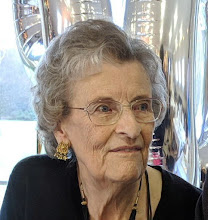 Most of us have probably heard of SAD, or Seasonal Affective Disorder - a sort of depressive condition which affects many of us in the winter, when there is not much sunlight, and which for some people can be bad enough to cripple their lives.
Most of us have probably heard of SAD, or Seasonal Affective Disorder - a sort of depressive condition which affects many of us in the winter, when there is not much sunlight, and which for some people can be bad enough to cripple their lives.But have you heard of HAD? This is not a new affliction, but an old one with a new name which gives it credibility. In the past, the term Hypochondria has tended to be used, at least in common parlance, in a derogatory and dismissive sense, with implications of "Pull yourself together - it's all in the mind!" But according to a TV programme I watched last week, the condition is now officially described as Health Anxiety Disorder - something you need not be ashamed of suffering from, my friends!
The programme was about a group of people whose lives are being screwed up in varying degrees by their health anxieties. They spend a week in a remote country house with a handful of cognitive behavioural therapists*, in an attempt to help them start curing themselves. Well, some of them made some progress, and although my tone may be somewhat tongue-in-cheek here, I can bear witness to this method from my own experience.
I am a self-confessed hypochondriac, and there was a time in my life when it took such a hold of me that for a while I became an invalid and then bed-bound. I got myself out of it eventually, and came slowly back to life, but it wasn't until several years later, as the effects lingered on, that I finally recognised that my physical symptoms had had a psychological cause.
At that point I was lucky enough to find a good cognitive behavioural therapist who, with the help also of hypnosis, sorted me out and helped me to get my life back. I still get the occasional regressions, and have to call upon the skills the therapist taught me. But I am now able to recognise when my body is producing physical symptoms which have their origins in some sort of mental or emotional disturbance. Once the cause is identified, I can either do something about it, if it needs sorting; or I can say to myself. "Don't be silly - if that's all it is, it's nothing to get stressed about".
By the way, I just hate that expression "all in the mind": it usually seems to be applied in circumstances when the point is that the problem is not "all" one thing or another, but is in both the mind and the body, because the one works upon the other. We need to be healthy in both if we are to function properly.
So ... We've had SAD, and now we've got HAD. I wonder if the next medically recognised disorder will be BAD, or Blog Addiction Disorder?
[* "The treatment focuses on changing an individual's thoughts (cognitive patterns) in order to change his or her behavior and emotional state." Encyclopaedia of Medicine]




2 comments:
Wayne Dyer, among others, has said, "As you think, so shall you be." We only have to watch ourselves to see how that works. We think about sad things, we cry. We think about things that make us angry and our blood pressure goes up. We think happy thoughts and we smile. We LIVE in our heads first. The world we see is as much a translation of those thoughts into reality as it is reality transformed by the way we think. Thought-provoking post, Judith. Thanks :)
Yes, 'all in the mind' is an ignorant, uncomprehending phrase.
Thanks for sharing your experiences, I'm glad you found a way through.
As for BAD, I've most certainly got that!
Post a Comment